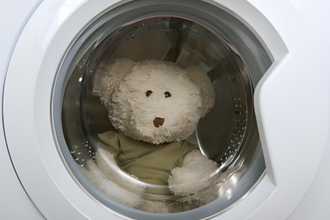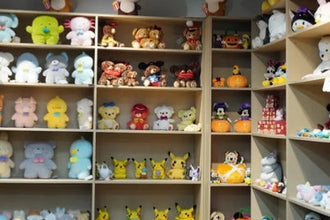Emotional support stuffed animals are more than just plush toys; they serve as therapeutic companions that provide comfort, reduce stress, and offer a sense of security. These plush companions are particularly beneficial for individuals experiencing anxiety, depression, PTSD, sensory processing disorders, or loneliness. Their soft textures, weighted designs, and calming features make them a valuable tool for emotional well-being.

Why Emotional Support Stuffed Animals are Needed
1. Reducing Anxiety and Stress
One of the main reasons people need emotional support stuffed animals is their ability to reduce anxiety and stress. Holding, hugging, or squeezing a plush toy triggers the release of oxytocin, a hormone that promotes feelings of calmness and relaxation. This is particularly helpful for individuals struggling with generalized anxiety disorder, social anxiety, or stress-induced insomnia. The soft texture and warmth of a stuffed animal create a sense of security, helping people feel safe even in distressing situations.
2. Providing Comfort for PTSD and Trauma Survivors
For those experiencing PTSD or past trauma, emotional support stuffed animals provide a grounding effect. The familiar presence of a plush companion can help individuals feel anchored in the present moment, reducing panic attacks or emotional flashbacks. Many trauma survivors find that sleeping with a stuffed animal or carrying one throughout the day helps with emotional stability and self-regulation.
3. Reducing Feelings of Loneliness and Isolation
Loneliness and social isolation are other key reasons why people turn to emotional support stuffed animals. These plush companions offer a sense of companionship, making individuals feel less alone, especially in cases of grief, depression, or major life transitions. For children, they serve as comfort objects that provide reassurance during times of separation anxiety, while for elderly individuals, they can help ease feelings of solitude.
4. Aiding Sleep and Insomnia
Another important benefit is improved sleep quality. Many individuals who struggle with insomnia or nighttime anxiety find that sleeping with a stuffed animal creates a sense of comfort and routine, much like a weighted blanket. This is especially beneficial for children who experience nightmares or bedtime fears and for adults dealing with stress-related sleep disturbances.

5. Helps with Sensory Processing Disorders
For those with sensory processing disorders (SPD) or autism spectrum disorder (ASD), emotional support stuffed animals offer an important tool for sensory regulation. Weighted or textured plush toys provide deep pressure stimulation, helping individuals feel more grounded and focused. The repetitive act of touching or squeezing a stuffed animal can also have a soothing effect, making them an essential coping mechanism for those who experience sensory overload.
6. Helping Children with Emotional Development
Emotional support stuffed animals also play a significant role in emotional development. For children, these plush toys help with expressing emotions, developing empathy, and learning self-soothing techniques. They provide a safe space for children to talk about their feelings and navigate emotional challenges in a healthy way.

Key Features of Emotional Support Stuffed Animals
1. Soft and Huggable Texture
The plush, velvety, or fuzzy fabric of emotional support stuffed animals offers a soothing tactile experience, helping individuals feel calm and secure. The softness of the material mimics the sensation of a gentle hug, promoting relaxation and emotional regulation.
2. Weighted Design for Deep Pressure Stimulation
Many emotional support stuffed animals come with weighted filling, similar to a weighted blanket. This feature provides deep pressure stimulation (DPS), which helps reduce anxiety, stress, and sensory overload, making them particularly beneficial for individuals with autism, PTSD, or sensory processing disorders.
3. Aromatherapy Infusion for Relaxation
Some emotional support stuffed animals are infused with calming scents, such as lavender, chamomile, or vanilla, to promote relaxation and stress relief. These aromatherapy-infused plush toys help individuals struggling with insomnia, anxiety, or emotional distress.

4. Built-in Heartbeat Simulation for Comfort
Certain models feature a simulated heartbeat, replicating the comforting feeling of being close to another living being. This feature is particularly helpful for individuals dealing with separation anxiety, PTSD, or nighttime fears, providing a sense of companionship and security.
5. Heatable and Freezable Inserts
Some emotional support stuffed animals come with microwavable heating packs or freezable inserts that provide warmth or a cooling effect. These temperature-adjustable features help individuals with stress, muscle tension, or sensory sensitivities, making the plush toy an even more effective relaxation tool.
6. Soothing Sound and Music Options
Many emotional support stuffed animals include built-in sound modules that play calming sounds such as white noise, lullabies, ocean waves, or gentle music. These sounds create a soothing environment for sleep, meditation, or relaxation, reducing stress and anxiety.
7. Portable and Travel-Friendly Size
Emotional support stuffed animals come in a range of sizes, with many designed to be compact and easy to carry. This makes them convenient for individuals who need on-the-go comfort, whether at school, work, or while traveling.

Types of Emotional Support Stuffed Animals
This overview highlights how different types of emotional support stuffed animals cater to various emotional and psychological needs.
|
Type of Emotional Support Stuffed Animal |
Key Features |
Benefits |
|
Filled with weighted materials (e.g., beads, sand) for deep pressure stimulation. |
Provides a calming effect, reduces anxiety, and helps with sensory processing. |
|
|
Heated Stuffed Animals |
Contains warming elements (microwavable or battery-powered). |
Soothes muscle tension, promotes relaxation, and aids sleep. |
|
Lavender-Infused Plush Toys |
Infused with lavender or other aromatherapy scents. |
Helps with stress relief, enhances sleep quality, and promotes relaxation. |
|
Personalized designs resembling a pet or a loved one. |
Provides sentimental comfort, helps with grief, and fosters emotional connection. |
|
|
Talking or Sound-Emitting Plush Toys |
Plays comforting sounds, heartbeat rhythms, or recorded voices. |
Reduces loneliness, provides reassurance, and offers emotional support. |
|
Soft, Ultra-Plush Comfort Animals |
Extra-soft fabric for a soothing tactile experience. |
Provides a sense of security, ideal for emotional self-soothing. |
|
Therapeutic Stuffed Animals for PTSD |
Designed with trauma-sensitive features like deep pressure and soft textures. |
Helps PTSD patients with grounding and emotional regulation. |
|
Stuffed Animals with Pockets for Notes or Keepsakes |
Includes small storage areas for personal messages or small items. |
Encourages positive affirmations, supports grief therapy, and enhances emotional expression. |

Final Thoughts
Emotional support stuffed animals are powerful tools for emotional well-being. Whether offering relief from anxiety, aiding in sleep, or providing comfort during difficult times, these soft companions can make a significant impact on mental health.







